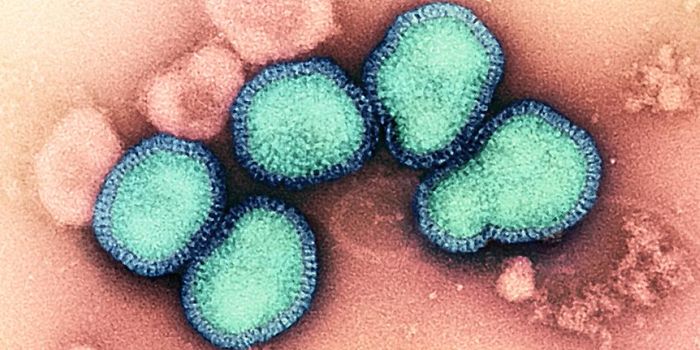Autoimmune Diseases Are Triggered By Infection - But How?
There are a handful of explanations for why people develop autoimmune diseases, and a recent study has scientists investigating a new solution.
A new study from the University of Basel was focused on the possibility that immune cells encounter an error during an infection in the body. The theory? The immune system confuses protein structures from pathogens with the body’s own proteins of structural similarities.
Somehow, the researchers thought, infections are acting as triggers for autoimmune reactions, which happens when immune cells recognize self cells as foreign, as if they were pathogenic cells instead of human cells.
From their study, they saw that as immune cells, B cells specifically, recognized and extracted influenza virus proteins from the cell surface of virally-infected cells, they were also extracting small amounts of neighboring membrane proteins. These proteins, called autoantigens, were taken from cell membranes in the central nervous system.
They saw the B cells activate other immune cells, like T cells, to fight the influenza virus after they extracted the cell surface proteins. However, in addition to an immune response designed to target influenza, the B cells also triggered an autoimmune reaction against the self membrane proteins.
Because of the uptake of autoantigens, an immune response ensued causing autoimmune inflammation in the brain in the genetically modified mice models used in the study. This is how a viral infection could trigger the activation of autoimmune T cells due to a mistake made by B cells while they uptake nearby proteins. Researchers involved believe that the same mechanism causes brain inflammation in humans, too.
“The next step would now be to examine whether similar errors occur in protein uptake by human B cells,” explained lead scientist Professor Tobias Derfuss. “We also want to clarify whether a viral infection in an animal can, under certain circumstances, lead to autoimmune inflammation in the brain.”
The present study was published in the journal PNAS.
Source: University of Basel









